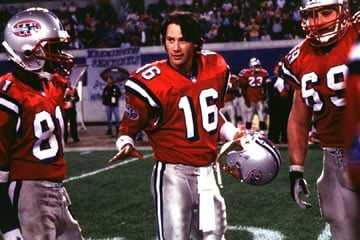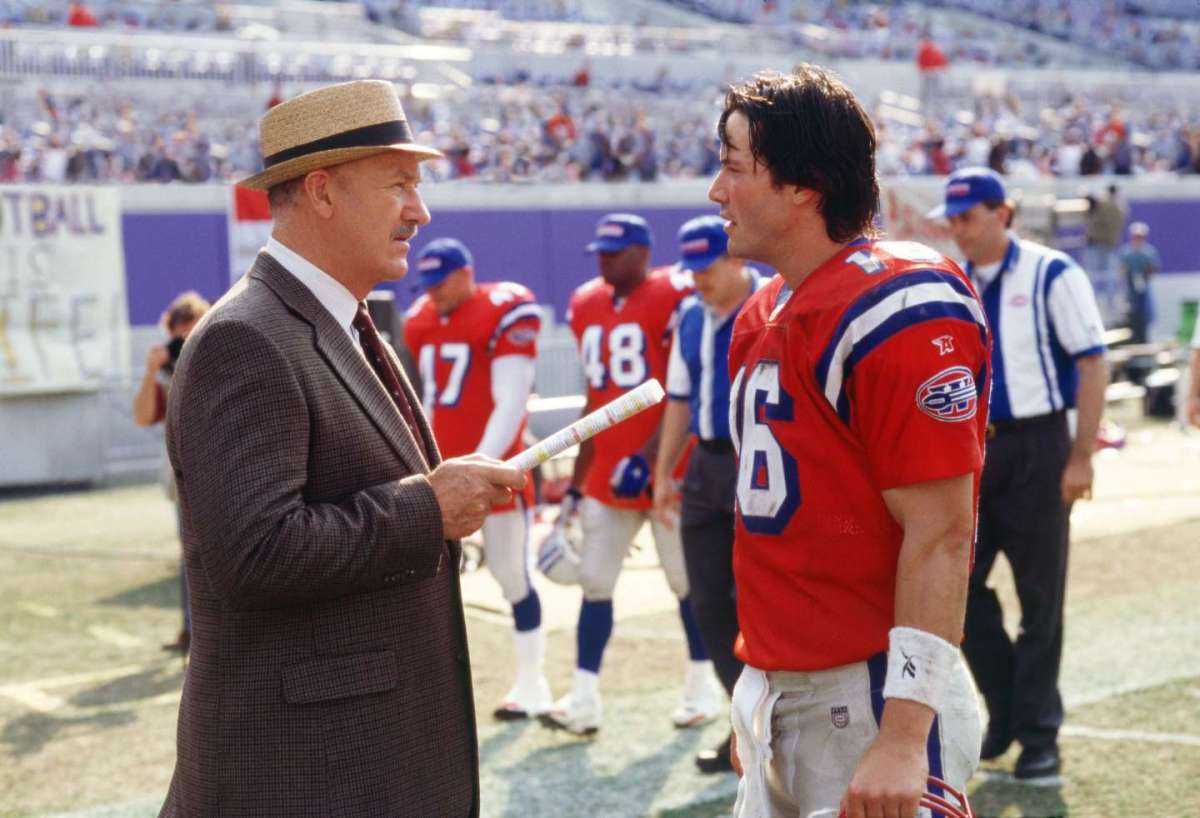Quotes from the Cinema continues to propose new cinematic phrases to share and today we talk about “Do you know what separates a vicente from a loser, boy?”, Said by coach Gene Hackman to the old glory Keanu Reeves in The reserves
“You know what separates a winner from a loser”Is today’s quote and is extrapolated from The reserves, a 2000 comedy with interesting contents, especially for dreamers and sportsmen. The focal theme is in fact the famous second chance, which some are lucky enough to obtain and few know how to fully exploit.
The second chance is precisely what is proposed to the protagonist Shane Falco, played by a Keanu Reeves that we remember well for his role in the John Wick saga. In fact the coach (Gene Hackman) urges him to return to the field after his farewell to football, telling him:
Do you know what separates a winner from a loser, boy?
Reassemble after taking a kick in the teeth.
The gist of the discussion between the two therefore explains a fundamental concept: who can be considered a real winner in life and who has lost. The line that allows us to distinguish the two categories is very simple. In fact, it is specified that both the winner and the loser have lost on certain occasions, but that what differentiates them is the willingness to pick up where they left off. The first is therefore ready to try again and to exploit the teaching deriving from the defeat, while the second dwells on the result and has no intention of making another attempt.

The difference between winning and losing
The answer to “Do you know what separates a winner from a loser, boy?”Is far-sighted and capable of attracting attention. In fact, the coach, by saying so, knows how to attract the attention of the athlete. His exposing himself in a slightly rough way helps to identify himself in the situation and defining him as a boy does not serve to underline the age difference between the two, but to indicate the coach as the symbol of wisdom and the player as the subject who is wrong not to grasp. his last chance. It is as if the voice of wisdom intervenes to advise and motivate those in need.
With a simple question and a simple answer he manages to hit the athlete, who finds the desire to return to the field and take advantage of his opportunity for the last time. The effect of his speech is in fact to lead the interlocutor to ask himself if he wants to be a winner or if he is satisfied with being a loser.
The spectator himself, in listening to the speech is motivated and wonders which side he wants to be on. It is obvious that he chooses the winning path, the most difficult one but which can also lead to great satisfaction.
Being a winner means in fact that you can fall, but you have to find the strength to try again, learning from the mistakes made. On the other hand, being a loser is equivalent to accepting defeat and losing all the stimuli necessary to resume the journey to the top. The differentiation between winner and loser is therefore not dictated by the results achieved but by the desire to improve and continue on their own path. The key element is not the certainty of achieving the desired result, but the awareness of having fought to the limit of strength to reach the finish line.
The quote therefore acts as a warning to those who find themselves momentarily lost and unsure of the choices they are making.















